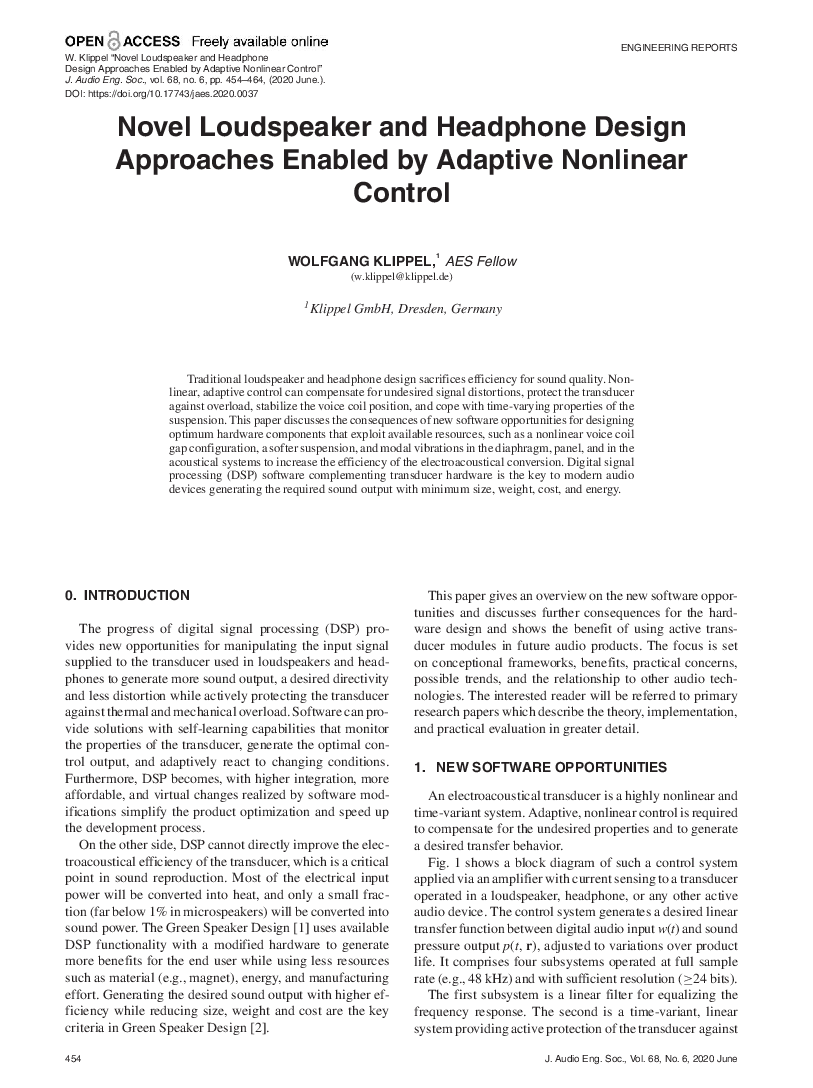Home / Publications / E-library page
You are currently logged in as an
Institutional Subscriber.
If you would like to logout,
please click on the button below.
Home / Publications / E-library page
Only AES members and Institutional Journal Subscribers can download
Traditional loudspeaker and headphone design sacrifices efficiency for sound quality. Nonlinear, adaptive control can com- pensate for undesired signal distortions, protect the transducer against overload, stabilize the voice coil position, and cope with time-varying properties of the suspension. This paper discusses the consequences of new software opportunities for designing optimum hardware components that exploit available resources, such as a nonlinear voice coil gap configuration, a softer suspension, and modal vibrations in the diaphragm, panel, and in the acoustical systems to increase the efficiency of the electroacoustical conversion. Digital signal processing (DSP) software complementing transducer hardware is the key to modern audio devices generating the required sound output with minimum size, weight, cost, and energy.
Author (s): Klippel, Wolfgang
Affiliation:
Klippel GmbH, Dresden, Germany
(See document for exact affiliation information.)
Publication Date:
2020-06-06
Import into BibTeX
Permalink: https://aes2.org/publications/elibrary-page/?id=20861
(644KB)
Click to purchase paper as a non-member or login as an AES member. If your company or school subscribes to the E-Library then switch to the institutional version. If you are not an AES member Join the AES. If you need to check your member status, login to the Member Portal.

Klippel, Wolfgang; 2020; Loudspeaker and Headphone Design Approaches Enabled by Adaptive Nonlinear Control [PDF]; Klippel GmbH, Dresden, Germany; Paper ; Available from: https://aes2.org/publications/elibrary-page/?id=20861
Klippel, Wolfgang; Loudspeaker and Headphone Design Approaches Enabled by Adaptive Nonlinear Control [PDF]; Klippel GmbH, Dresden, Germany; Paper ; 2020 Available: https://aes2.org/publications/elibrary-page/?id=20861